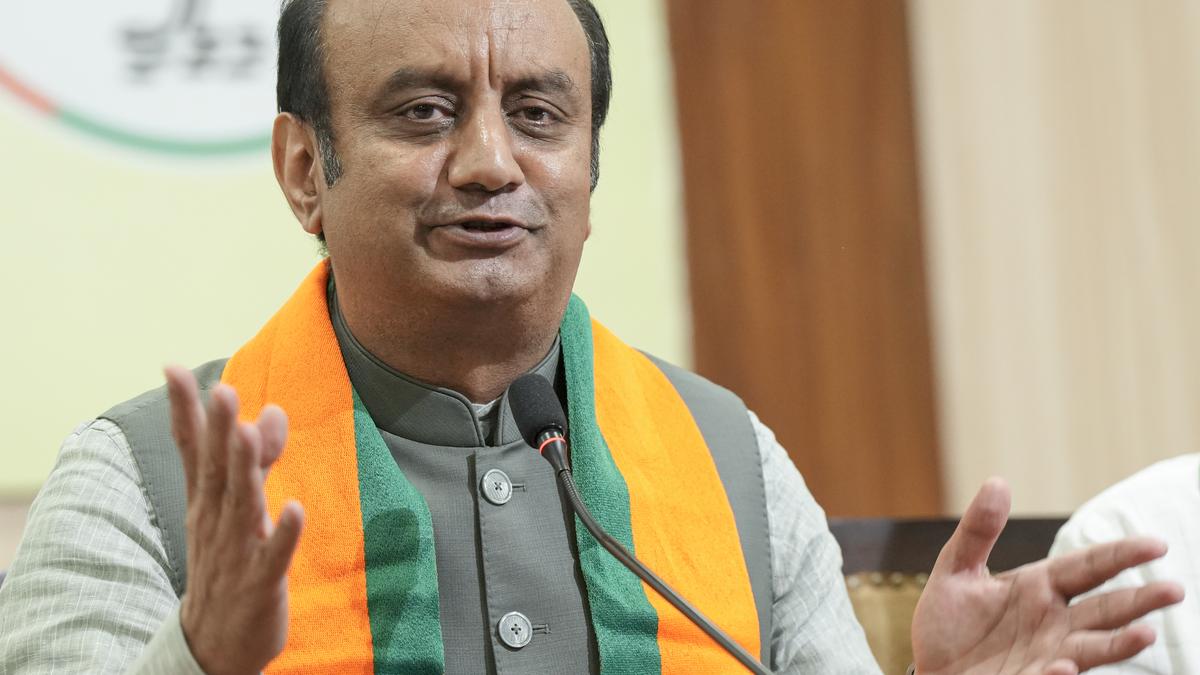Some nations are violating or undermining global rules while others seek to impose their own, Union Defence Minister Rajnath Singh said on Tuesday (October 14, 2025), asserting that India stands firm in upholding the international rules-based order even as it pushes for reform of outdated multilateral structures to meet contemporary challenges.
Addressing senior military leaders of the United Nations Troop Contributing Countries (UNTCC) at the inaugural session of the Chiefs’ Conclave, underway at the Manekshaw Centre in New Delhi from October 14-16, and being hosted by India for the first time, the Defence Minister highlighted a “4C formula” — consultation, cooperation, coordination, and capacity-building — as a guiding principle for U.N. peacekeeping. The approach was essential to tackle emerging challenges, and ensuring sustainable global peace, he said.
“Peacekeepers today face increasingly complex challenges, from volatile environments marked by terrorism, and asymmetric warfare and fragile political settlements to operations amid humanitarian crises, pandemics, and misinformation campaigns,” Mr. Singh said.
Urging technologically advanced and financially capable nations to enhance their contributions through troops, logistics, technology, and specialised capacities, the Minister said innovations such as secure communications, surveillance systems, and unmanned platforms could make missions safer and more effective.
“Meeting the emerging challenges demands more than bravery; it requires adaptability and innovation on the part of troop-contributing countries,” Mr. Singh said. “We cannot fight today’s challenges with outdated multilateral structures. Without comprehensive reforms, the U.N. faces a crisis of confidence. We need reformed multilateralism that reflects today’s realities, gives voice to all stakeholders, and focuses on human welfare.”
The senior Bharatiya Janata Party (BJP) leader reaffirmed India’s steadfast support to U.N. peacekeeping, noting that nearly 2,90,000 Indian personnel had served in over 50 missions across the world, from the Congo and Korea to South Sudan and Lebanon. “India is ready to contribute troops, share expertise, and support reforms that make peacekeeping more effective and accountable,” he said.
Highlighting the importance of preparedness, he spoke about the Centre for United Nations Peacekeeping in New Delhi, which has trained participants from over 90 countries, fostering interoperability and mutual understanding among global peacekeepers. Mr. Singh also spoke about India’s contribution under the Aatmanirbhar Bharat initiative, developing indigenous, cost-effective technologies, including land mobility platforms, secure communications, UAVs (unmanned aerial vehicles), and medical solutions to enhance mission capability.
Lauding the growing participation of Indian women peacekeepers, the Minister called it one of the most inspiring transformations in global peacekeeping. He recalled India’s pioneering all-women Formed Police Unit in Liberia in 2007, which became a global symbol of empowerment, and noted that in 2024, an Indian Army woman officer was honoured with the U.N. Military Gender Advocate of the Year Award for her service in the Democratic Republic of Congo.
“Indian medical teams had treated thousands of civilians and peacekeepers in U.N. field hospitals across Africa, embodying the spirit of humanity and service,” Mr. Singh said.
In his welcome address, Chief of the Army Staff General Upendra Dwivedi highlighted India’s long-standing contributions to U.N. peacekeeping, and reaffirmed the Indian Army’s commitment to operational excellence, technological innovation, and capacity-building through institutions, including the Centre for United Nations Peacekeeping.
The UNTCC Chiefs’ Conclave, hosted by the Indian Army, brought together senior military leadership from 32 nations committed to strengthening peacekeeping and upholding global stability via cooperation and reform.

 4 hours ago
5
4 hours ago
5








 English (US) ·
English (US) ·